Tips for Best Results-OTC
Use the tips below to get the most out of your over-the-counter (OTC) antiperspirant.
- Choose a soft-solid formula, and make sure it's an antiperspirant, not just a deodorant. There's a BIG difference. Deodorants, on their own, don't prevent sweating, they just reduce odor by limiting odor-causing bacteria.
- Consider using a stronger over-the-counter antiperspirant. Check out the listings on our Fan Fave Products page for products made by companies that support our work and understand hyperhidrosis.
- Apply antiperspirant once in the morning and again prior to bedtime. Application twice daily—and especially before bedtime—has been studied to provide the most benefit. If you are only going to apply once, then make it before you go to bed.
- Gently massaging the antiperspirant into the skin may be useful.
- To avoid irritation, only apply antiperspirant to completely dry skin. Dry your skin with a hair dryer on a cool setting or with a towel, if necessary. If there is any sweat or water on your skin, when you apply the antiperspirant, you will create skin irritation and stinging.
- If you have sensitive skin or experience irritation, avoid antiperspirants that contain a fragrance. Fragrance can sometimes cause irritant or contact dermatitis. Don't worry, unscented antiperspirants block odors, too. The active ingredients in antiperspirants inhibit odor-causing bacteria, thereby minimizing body odor. Note that deodorants almost always contain a fragrance and that can lead to irritation, other ingredients in deodorants - like essential oils, can contribute to an allergic reaction.
- Never occlude, or wrap your skin in plastic, when using antiperspirants. Doing so can increase irritation and has not been shown to improve benefit whatsoever.
- If you suffer from an annoyingly sweaty face, consider applying an antiperspirant along your hairline. Follow the application tips mentioned above, but test the product on a tiny area of skin first to make sure that it won’t cause irritation.
- Aerosol antiperspirant products are particularly useful for managing sweaty feet. Spray an antiperspirant on the bottom of your feet and in between your toes as a first-line treatment. (Be sure to read our Antiperspirant Spray Recall Report here first.) Antiperspirant wipes are a convenient option for the feet as well as other body areas.
- Remember, it is common to combine treatments to strike the best balance for your sweat management. Consider combining Botox injections with an antiperspirant, for example, for longer lasting effects.
-
Skin irritation from antiperspirant use can sometimes lead to post-inflammatory hyperpigmentation (PIH) or postinflammatory pigment alteration (skin turning lighter or darker). In general, PIH or other skin tone changes are more likely to occur in skin of color. PIH happens when skin makes extra melanin after it has been irritated or injured. Melanin is a natural pigment responsible for color in our hair, skin, and eyes. Skin cells can react to irritation by making extra melanin, which leads to post-inflammatory hyperpigmentation. This skin condition shows up as tan, brown, dark brown, or even blue-gray patches or spots on the skin. Areas of hyperpigmentation can fade on their own without treatment (over 6-12 months) but a dermatologist can also help speed up the process with treatments like skin lighteners, retinoids, or chemical peels. If you are concerned about the risk of skin color alterations with antiperspirants discuss this with your healthcare provider in advance.

